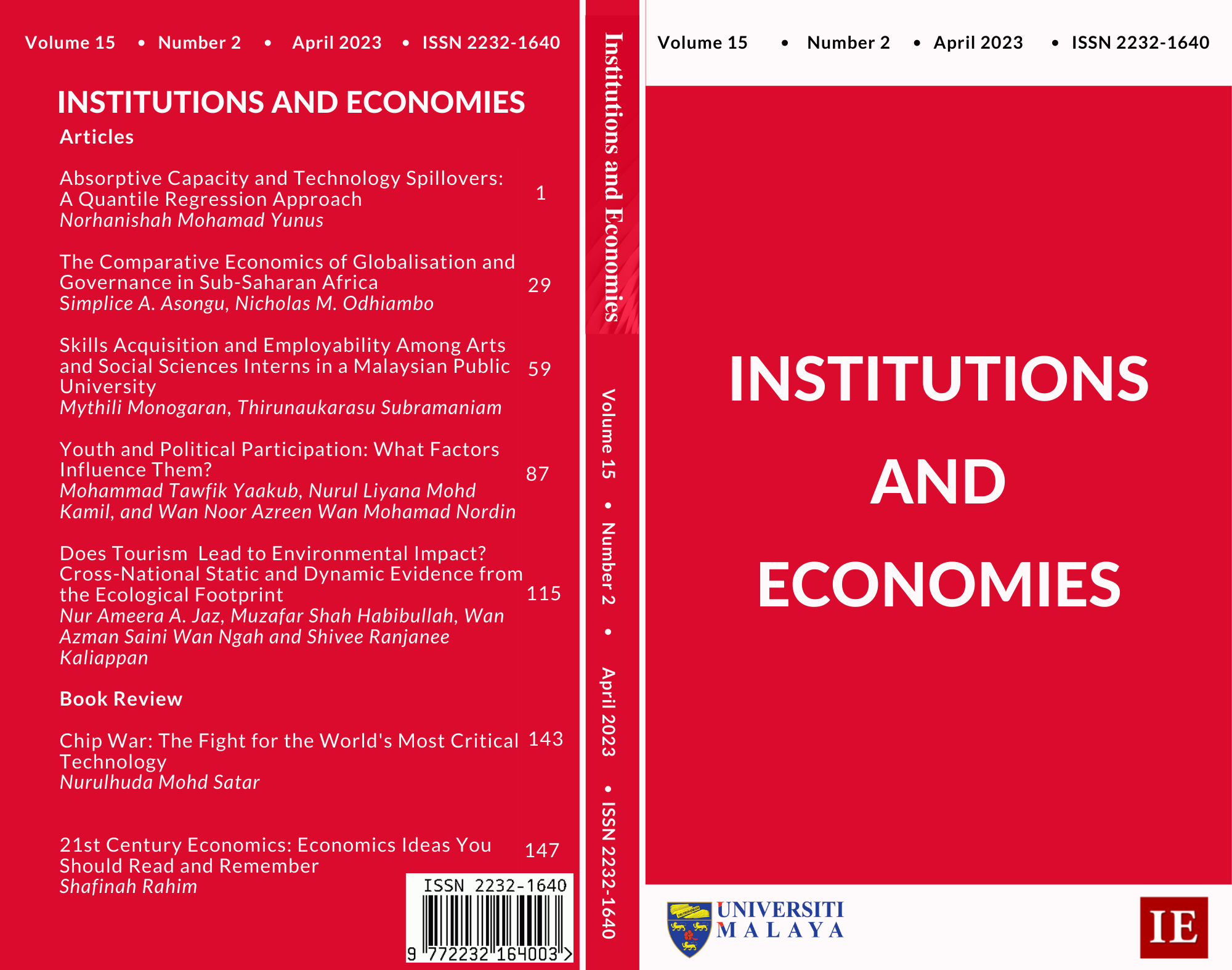Skills Acquisition and Employability Among Arts and Social Sciences Interns in a Malaysian Public University
DOI:
https://doi.org/10.22452/IJIE.vol15no2.3Keywords:
Employability, Interns/internships, Employers, Skills gap, Graduate employabilityAbstract
Many Malaysian employers feel that university curricula inadequately prepare graduates for the realities of the job market. The present study attempts to rank skills acquisition among interns at a Malaysian public university and identify the gaps through skills gap and radar analyses. Respondents comprised students from an Arts and Social Sciences faculty in a Malaysian public university who had undergone internship as well as the employers who conducted trainings for them. Using a simple random sampling method, 164 students and 43 employers provided responses. The largest gap between employers’ expectations and interns’ performance is seen for ‘values, attitudes and professionalism’. Employers tend to emphasise ‘values, attitudes and professionalism’ as an essential skill for employability. Positive qualities, such as having good work habits and attitudes, are valuable assets that need to be inculcated. Another skill that requires improvement is ‘communication, leadership and team skills’, as poor communication skills can become a serious obstacle for employability. This study provides insights from a dual perspective analysis through the identification of gaps between actual and expected intern performance. This information will be a valuable guideline in redesigning university modules to meet the demands of potential employers.
Downloads
Downloads
Published
How to Cite
Issue
Section
License
Submission of a manuscript implies: that the work described is original, has not been published before (except in the form of an abstract or as part of a published lecture, review, or thesis); that is not under consideration for publication elsewhere; that its publication has been approved by all co-authors, if any, as well as tacitly or explicitly by the responsible authorities at the institution where the work was carried out. Transfer of copyright to the University of Malaya becomes effective if and when the article is accepted for publication. The copyright covers the exclusive right to reproduce and distribute the article, including reprints, translations, photographic reproductions, microform, electronic form (offline and online) or other reproductions of similar nature.
An author may self-archive the English language version of his/her article on his/her own website and his/her institutions repository; however he/she may not use the publishers PDF version which is posted on www.ijie.um.edu.my. Furthermore, the author may only post his/her version, provided acknowledgement is given to the original source of publication and a link must be accompanied by the following text: The original publication is available at www.ijie.um.edu.my.
All articles published in this journal are protected by copyright, which covers the exclusive rights to reproduce and redistribute the article (e.g. as offprint), as well as all translation rights. No material published in this journal may be reproduced photographically or stored on microfilm, in electronic database, video disks, etc., without first obtaining written permission from the publishers. The use of general descriptive names, trade names, trademarks, etc., in this publication, even if not specifically identified, does not imply that these names are not protected by the relevant laws and regulations.
The copyright owners consent does not include copying for general distribution, promotion, new works, or resale. In these cases, specific written permission must first be obtained from the publishers.








